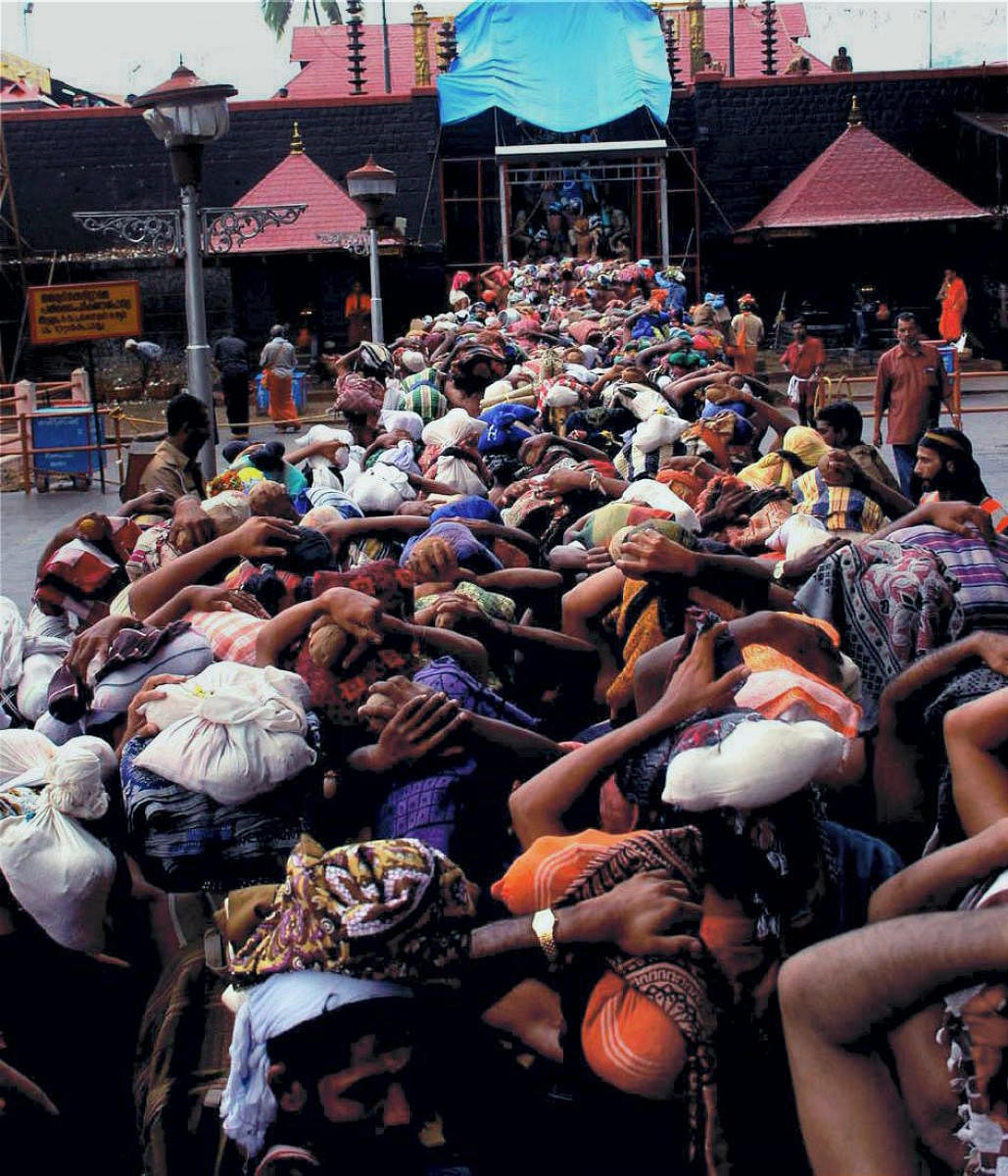
The Supreme Court is on a roll recently; it has passed a slew of historic judgements back to back. One such landmark verdict was allowing women, irrespective of age, to enter Kerala’s Sabarimala temple.
A five-judge Constitution bench, headed by Chief Justice of India Dipak Misra, said that the provision in the Kerala Hindu Places of Public Worship Rules, 1965, which authorised the restriction, violated the right of Hindu women to practice religion.
For centuries, women of menstrual age were restricted from entering the Sabarimala temple as its presiding deity, Lord Ayyappa, is considered to be a celibate.
A number of petitions had challenged these restrictions. People from various walks of life spoke to Metrolife about the verdict.
Kavitha Lankesh, director
I am very happy; this is an important development which ensures gender equality. It’s a very patriarchal thing to say that women can’t enter Sabarimala temple when they are menstruating; it is based on the wrong notion that such women are impure. I don’t believe that women may not be safe there either. Women will surely be safe.”
Girija Lokesh, actor
I am glad that women have been allowed to enter the temple. I myself went to the Sabarimala temple in 1988. It is located in a very picturesque place in a forested area overlooking the River Pampa. It was a tedious but wonderful journey. The peaceful environment and soulful chants transport you to a different place. Why should only men experience it? In God’s eyes both men and women are one, then
why should there be a discrimination.”
Shruthi, communications professional
I am not against the judgement but I am looking at it from a realistic point of view. In reality, this is a bad idea. It is a small place and is insanely packed. In other temples, it has been climatised such that both men and women will come so the place is designed that way. But here, only men have been coming for ages. There should be a lot more facilities put in place for both genders. This will take years. During the time taken for this, untoward incidents may happen.”
Damodar Varma, MNC professional
I feel this was not necessary. The belief of millions is being challenged. It’s not like women are not allowed inside the temple at all; only women of a specific age are restricted.
The trip to Sabarimala is arduous. If women are making the climb, then separate facilities will need to be provided. I feel only a handful of ladies will make the climb just to prove their point, others will not agree.”
Sandhya Chandran, corporate trainer and coach
I am definitely not in agreement with the decision. The belief system has been in place for centuries and it is not detrimental in anyway. I don’t think women are harmed by not having entered the temple.
Gender equality cannot be helped by allowing someone to enter a particular temple. There are other issues to be addressed. I think a majority of women will not go to the temple. It is a decades-old practice and not many would want to break the tradition. I also believe that if we have a rule like this, let’s have it across all religious denominations.”
Lone woman SC judge strikes dissenting note in verdict
The only woman judge on the five-judge constitution bench, Justice Indu Malhotra, has a dissenting view. She said that the notions of rationality cannot be applied in matters of religion.
Noting that the shrine and deity are protected under Article 25 of the Constitution, Justice Indu observed that it was not for the court to decide which religious practices should be struck down, except in issues of social evil like ‘Sati’. She was of the view that the petition does not deserve to be entertained.
Safety of women at stake, will plan agitation
B Jayaprakash, All India General Secretary of Akhila Bharatha Sabarimala Ayyappa Seva Samajam, calls the judgement unfortunate. He says they are considering filing a review petition and will launch a big agitation.
He firmly states that they will not allow women to cross the Pampa river. “Nobody has said that women should not go there. Only women between the ages of 10 and 50 must not go there. This is not because of any gender bias or biological issue but because that particular deity has taken up ‘sanyasam’. Otherwise, women are allowed to go to all Ayyappa temples.”
Jayaprakash is of the opinion that the Supreme Court should have set up a commission to explore logistical and infrastructural issues. “Safety of women is of
utmost importance. I now fear that there will be a lot more cases of sexual abuse and molestation.”
What the judges said
CJI Dipak Misra said devotion cannot be subjected to discrimination. “Patriarchy in religion cannot be allowed to trump right to pray,” he said.
Justice Chandrachud: “Religion cannot be used as cover to deny rights of worship to women and it is also against human dignity. To suggest that women cannot undertake the 41-day ‘vratham’ (vow of abstinence and austerity) is to stereotype them.”
Justice Nariman said “To exclude women of the age group of 10-50 from the temple is to deny dignity to women. To treat women as children of lesser god is to blink at the Constitution.”
All judges ruled that devotees of Lord Ayyappa do not constitute a separate religious denomination.